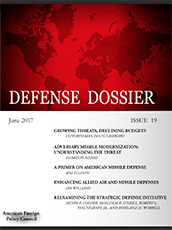Russia Has Weaponized Energy
In January 2009, Eastern Europeans were rudely reminded of a very blunt fact: If Russia wants to shut off the gas, it can.
Angered by backlogged debts, Gazprom, Russia's massive state petroleum and natural gas corporation, cut off its supply of gas to neighboring Ukraine - and, through it, to parts of the European Union. For weeks in the dead of winter, millions of Europeans were stranded without power, as Gazprom and its Ukrainian counterpart Naftogaz blamed one another for the crisis. While the flow of gas eventually resumed, European governments emerged from the experience shaken, and for good reason.
